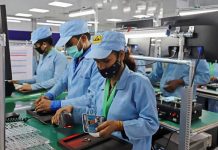This article is written by Ms. Nikara Liesha Fernandez from the School of Law, Christ University, Bangalore. This article deals with the legality of compulsory vaccinations in general and their specific application with relation to the current COVID-19 pandemic.
Table of Contents
Introduction
Vaccinations and other scientific discoveries are often received with mixed responses by the general public. Despite their necessity in trying times such as the current pandemic, people continue to resist ‘taking the jab’. This forms a part of the never-ending dilemma of whether one should give priority to personal health or public health.
Need to ensure compulsory vaccination
Vaccine hesitancy
The most recent coronavirus pandemic has once again brought the controversy of forced vaccinations to the forefront. In the beginning of 2019, the World Health Organization (WHO) named the hesitancy to vaccinate as one of the ‘ten gravest threats to global health’. The Cambridge Dictionary defines vaccination as ‘the process or an act of giving someone a vaccine (A vaccine being a certain substance put into a person’s body to prevent them from getting a disease).
Forced vaccinations are when the process of vaccination becomes mandated by the government and by law. People can no longer exercise their own rationale and free will as to whether they want to inject this foreign substance into their bodies. Although most countries allege that vaccinations are voluntary in nature, there are certain contingencies to the same which serve more or less as an ultimatum. Especially during this pandemic and even during the smallpox epidemic in Europe, doctors and health workers, in addition to other blue-collar workers who interacted with large numbers of people on a regular basis, such as drivers of public service vehicles, shop owners and school teachers in the professional sector as well as students themselves, who pose the risk of being superspreaders in colleges and schools due to the large student population were posed with the ultimatum of either getting vaccinated or losing their jobs or being banned from entering a public place which allows vaccinated individuals only.
While this argument is not without gravity, it is more easily defendable in foreign developed countries where the level of awareness, literacy and education about the vaccine itself and its side effects are public knowledge and the scientific findings and data are out in the open to reassure the public of its success rate and inform them of any possible risks involved.
The scenario is unfortunately very different in a country like India which suffers from numerous handicaps which makes the idea of ‘forced vaccinations’ a fearful topic despite there being legal mechanisms to enforce the same.
Myths to cure COVID-19
The rural population in India is understandably apprehensive about vaccines as they are towards most scientific principles as being so far removed and isolated from urban society and modern, scientific education and thinking. Moreover, due to the lack of accessibility and infrastructure to good healthcare and medical services, they have had no choice but to depend on indigenous and traditional means of curing ailments and diseases that afflict them.
Let alone the rural population, the past two years have shown that even politicians, such as members of parliament and various ministers of the ruling party of governance, the BJP have come up with outlandish remedies and magical cures for this novel coronavirus which even the top researchers and scientists from all over the world are struggling to combat themselves.
There have been countless absurd claims which supposedly trump medicines in curing this threatening virus ranging from drinking a concoction of cow urine (gomutra) mixed with ghee and milk to performing ‘yagna chikitsa’ to even blowing holy smoke from a shankh which would supposedly kill the coronavirus cells in the air.
Thus, in a country rife with such apprehensions and mistrust in science coupled with a lack of education and literacy, the prospect of forced vaccinations or vaccination mandates is likely to create more hesitancy and doubt than the opposite.
How can the Indian government make vaccination compulsory and override individual freedom
Statements made by the Government
Although the Ministry of Health and Family Welfare has stated numerous times through their notifications that the choice to get vaccinated is completely voluntary, the Indian Government, if the situation necessitates i.e. on a further escalation of cases, has various options provided to it by law to make vaccinations compulsory. Critics often indicate that these options override individual freedom which is guaranteed to all citizens of the country through the Constitution of India which is after all the supreme law of the land.
Constitutional provisions
The fundamental rights which have direct implications with compulsory vaccinations are Article 21, which guarantees the protection of life and personal liberty (in specific, the right to privacy) and Article 25, guaranteeing the freedom of conscience and free profession, practice and propagation of religion, which will be discussed further on. The former is violated by forced vaccinations as an individual’s freedom of choice as to how he/she chooses to live his/her life is taken away and the latter is violated as in the face of ultimatums provided to workers, to get vaccinated or be fired violates their freedom to practice their profession.
In addition to the constitutional provisions, a number of other legislations empower the government to conduct compulsory vaccinations on the citizens of the country only if it is in the public interest and in protecting the public health at large. This is the common and essential factor underlying all the legislation dealing with compulsory vaccination.
Legislative provisions
The Epidemic Diseases Act, 1897
The Epidemic Diseases Act, 1897, under Sections 2 and 2A, empowers the central and state governments to whatever measures they see as necessary to prevent the outbreak and spread of an epidemic disease if they are satisfied that the existing laws are inadequate to deal with the same.
The National Disaster Management Act, 2005
The National Disaster Management Act, 2005, which the government has relied on heavily in the case of the COVID-19 pandemic through the National Authority and National Executive Committee created under the act itself, acts as the authority to carry out its provisions. They do so through Sections 6 to 10 of the Act which provides the specific powers and functions which they can exercise to mandate compulsory vaccinations through appropriate departments. Section 62 of the same Act empowers the central government to enforce the same measures if necessary.
The Passport Act, 1967
The third way which many governments all over the world have already adopted in order to ensure that their country does not get infected through tourists and individuals from other countries where the pandemic has caused more deleterious effects is by denying the issuance of new passports or revocation of the existing ones for those individuals who refuse to get vaccinated.
The Passport Act, 1967 provides the government with a valid defence for these actions as well on the grounds of ‘maintaining friendly relations with other countries or in the interest of the general public’. These restrictions have been adapted in the form of denying access to public employment and public welfare benefits for those individuals who refuse to get vaccinated as well. Some countries, in light of the rise in infections, have even banned flights to and from their respective countries to prevent the cross country spread of the infection.
Those individuals who are against the vaccine are commonly branded as anti-vaxxers who are anti-science in thought. The most common defence among the educated is the uncertainty with regards to the long-term health implication of the vaccine and whether that could pose to be more dangerous than the virus itself. As a result of this, and the basic human instinct of protecting oneself from potentially harmful substances for personal well-being, individuals see the mandate of compulsory vaccinations as overriding an individual’s freedom to live his/her life in a manner of their choice and in certain cases as a violation of their freedom to observe their religious orientations.
Judicial take on compulsory vaccination
Recently, the Meghalaya High Court held that although vaccinations were the need of the hour to combat the COVID-19 pandemic, forced vaccinations or vaccinating people through coercion was a violation of an individual’s fundamental rights. It held that compulsory vaccinations for public welfare were ironic as it impinges on the very freedom an individual has to live his life by his choice.
It violated the right of freedom to carry out an occupation or practice a profession of one’s choice as guaranteed under Article 19(1)(g) of the Constitution as state governments had started passing orders mandating that only those shopkeepers, vendors, taxi drivers, etc. who had been vaccinated would be allowed to resume their businesses. The Court also held that the above-mentioned individuals were required to display a prominent sign stating whether the staff of that establishment were vaccinated or not vaccinated and that the order to get vaccinated was purely directive in nature and not mandatory.
The right to informed consent by exercising individual autonomy is an essential part of Article 21 and depriving an individual of their decision-making autonomous power, was the equivalent of violating their right to privacy as well which was declared as a facet of Article 21. The forced taking of vaccinations and other intrinsic substances are against certain religious practices as well and as such violated Article 25 of the Constitution.
Defence available to the government
The government, however, can validly claim the defence that the freedoms of Articles 21 and 25 are not absolute in nature and are indeed subject to public health, morality and order. On these grounds, it is necessary for the state to take all possible measures, sometimes even subverting individual interests in order to serve the common good or public interest. However, just making it compulsory is not enough. The government needs to complement this by ensuring uniform and ready accessibility of the vaccine throughout all sections of society and at the same frequency and free of cost so that the rural poor do not get excluded from this purpose as that would defeat the defence of the public interest.
Instances in history where governments have forcefully performed medical surgeries on people
Forced sterilisation in India
There have been countless interventions by the governments of countries all over the world, some so grotesque and inhumane with relation to forced medical surgeries on people mainly sterilization and vaccination for certain epidemic diseases.
Forced sterilization of men had been adopted as a method of the official Family Planning Policy to control the exponential population growth and grapple with the emergency situation by the government in power in India between the 1950s and 70s. Sanjay Gandhi’s four-point programme, whose main aim was mass sterilization, wreaked fear among all men in 1976. Women too were made to accept Intrauterine Devices (IUDs) between 1965-66 and the first sterilization camp for men was carried out in Kerala in 1971. Men were forced into this sterilization for fear of losing their jobs, facing salary cuts and means of livelihood in general. In 1976 alone, India sterilized 6.2 million men.
When it gradually came to light that sterilization of men would reduce their fertility as compared to women, the strategy soon shifted to sterilization of women who were less likely to protest about the same and who received significantly less, if at all, any compensation for taking part in the same process as their male counterparts. Countless women even lost their lives during this dark period of history which is still prevalent in some parts of the country even today, such as Chhattisgarh.
Forced sterilisation of Uyghur Muslims in China
China is another horrific example where the government has established mass detention camps, wherein, the Uyghur Muslim women who are the minority Muslim women population in China were forcefully made to undergo sterilization procedures which amounted to a sort of demographic genocide.
Forced vaccinations in the US
The 1898-1904 smallpox epidemic in the United States of America was another instance where people consisting of men, women and even children were dragged out of their houses and into the streets at night by police and other officials who forcefully injected them with smallpox vaccine in order to contain the epidemic.
Mandatory vaccination of healthcare workers
Doctors and healthcare workers have been on the frontline in the fight against pandemics and epidemics throughout history. Being the only individuals who are skilled enough to tackle such health issues, they have no choice but to render their services especially in dire times like this where bodies are rushed to the hospitals in thousands of life-or-death situations. Hospitals and healthcare centres normally being places that save lives, at the time of a pandemic especially, also pose an equal risk of infection spreading if not more than saving infected individuals. A host of factors are responsible for this and vary depending on the strain, communicability and virulence of the virus or disease and as such the necessity of taking the utmost precautions are necessary for the safety of both, the medical staff as well as the public at large, in order to prevent their places of work from becoming a hotbed of infection.
If healthcare professionals themselves get infected with the virus then what are the fates of the rest of us without their essential services? It is due to concerns like this that governments and hospitals alike have mandated that all their employees get vaccinated at the earliest. However, being people as well who are equally entitled to their fundamental rights as the rest of the public and who share the same concerns with regards to the implication of new vaccines whose trials have been fast-tracked to serve the immediate needs of the society, some of them are apprehensive as well about taking the vaccine. It is definitely a violation of equality by only mandating the vaccination of health workers, even though they are most at risk and making the practice voluntary for the rest of society and this is a common woe among the medical fraternity. They too, under enormous pressure, are faced with the ultimatum of losing their jobs in case they refuse the vaccine and many nurses and healthcare staff have been vocal in protesting against the same as a violation of their right to life and their basic right to work.
Conclusion
From the above discussion, it is evident that the vaccination of the mass population is the need of the hour in case of any epidemic or pandemic, and in specific, the COVID-19 pandemic which is encapsulating the whole world at present. However, coercion of individuals towards the same is not the way ahead especially in a country like India. The government needs to follow through in its complementary duties of equitable distribution of vaccines, easy availability at no cost or minimal cost of the same. In addition to this, they must also ensure the wide-spreading and dissemination of information with regards to scientific findings and spread awareness with regards to the efficacy and possible adverse implications, both long-term and short-term of the vaccine as well. The key point which needs to be understood about most of the latest COVID-19 vaccines is that they are likely to prevent disease, not infection which means that vaccinated individuals at this point have greater protection for themselves but still pose a risk of being carriers to those who have not been vaccinated as yet. Thus, it can still be an agent of transmission of infection. Thus, the need of the hour right now is to ensure that vaccines are available to everyone (both: urban and poor) and then think about making it a compulsory process.
References
- https://indianexpress.com/article/india/holy-smoke-cow-urine-yagna-chikitsa-bjp-leaders-and-their-unscientific-claims-on-covid-cure/
- https://legislative.gov.in/actsofparliamentfromtheyear/disaster-management-act-2005
LawSikho has created a telegram group for exchanging legal knowledge, referrals, and various opportunities. You can click on this link and join:
 Serato DJ Crack 2025Serato DJ PRO Crack
Serato DJ Crack 2025Serato DJ PRO Crack










 Allow notifications
Allow notifications


